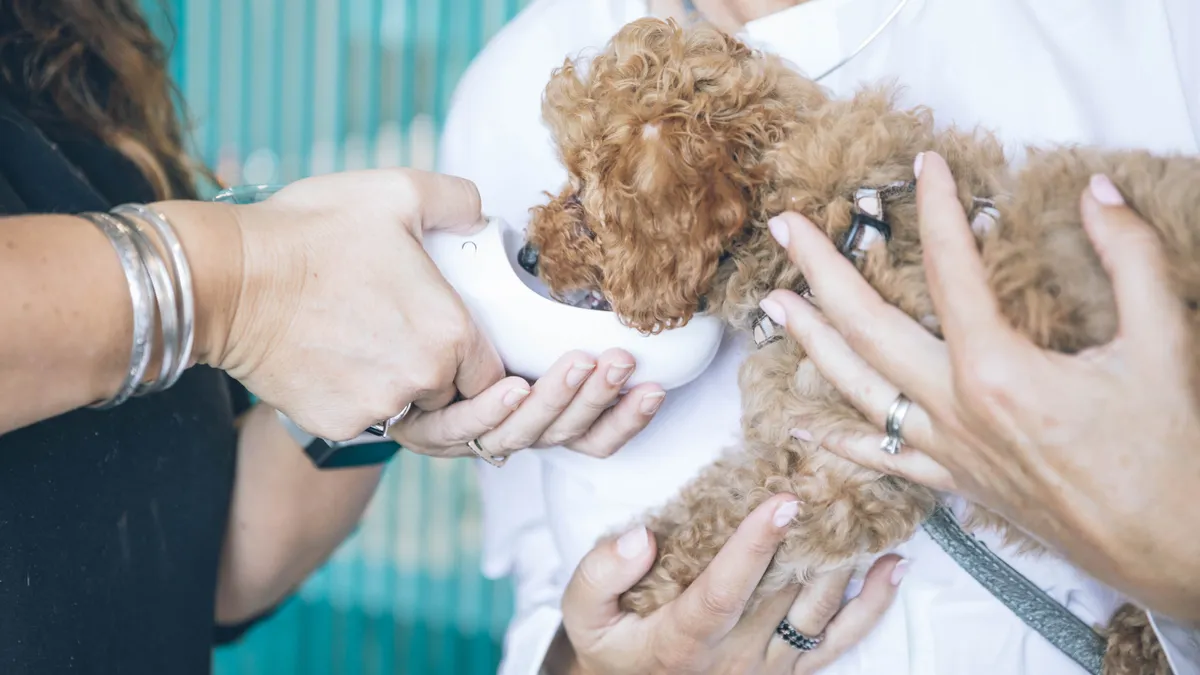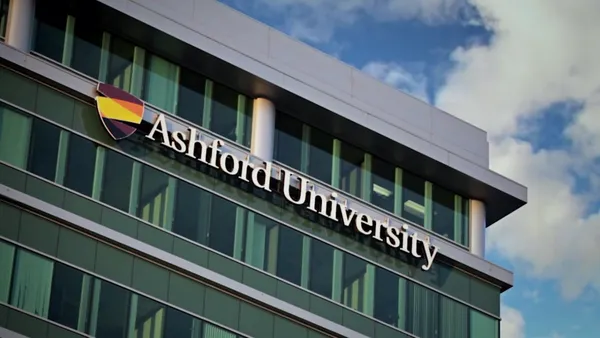Dive Brief:
- Arkansas State University is looking into a partnership with Adtalem Global Education to open a veterinary school. The company operates the for-profit Ross University School of Veterinary Medicine.
- The pair is planning a 180-day exploration period for the proposed program, which would enroll about 120 students annually. The university would seek accreditation for the school and program graduates would have an Arkansas State credential.
- Arkansas State said the partnership could result in the state's first veterinary medical school and would address a shortage of veterinarians in Arkansas and nationwide.
Dive Insight:
Adtalem, which formerly owned DeVry University and operated under that name, would provide "expertise related to veterinary program management and accreditation" as well as capital and operating funding for the program, according to a university announcement.
Company spokesperson Elizabeth Story told Education Dive in an email that this would be the company's first public-private partnership with a university. She wrote that the company could not speculate on details of a potential partnership "as we are in the very beginning stages of these conversations."
The university plans to create a task force to assess the partnership. That group is expected to deliver a recommendation later this year. Arkansas State officials also said in an announcement that they plan to work with veterinarians across the state to develop the program, saying the new school would help to address a shortage of practitioners there.
A spokesperson for Arkansas State did not respond to Education Dive's questions on Monday by press time.
Industry reports on the veterinary medicine sector show low unemployment rates and an uptick in the number of new practices, and there may be more jobs than qualified candidates, particularly in rural communities. The pace at which older practitioners are retiring is picking up, too.
However, some experts dispute claims of widespread shortages, suggesting that issues such as low starting salaries and high student debt levels could be causing fewer newly minted professionals to seek employment in the sector.
Veterinary education programs, particularly those offered by for-profit colleges, have been criticized for contributing to high costs, saddling workers with massive debt loads.
The 2018 class of veterinary school graduates had an average of $152,358 in student loan debt, though 17.3% had no debt and 10.3% reported more than $300,000, according to data from the American Veterinary Medical Association (AVMA). Meanwhile, the average starting salary for full-time veterinarians in private practice was just under $83,000. Vets starting in internships earned around $33,000.
Adtalem's Ross University School of Veterinary Medicine, founded in 1982, is based in the island country of St. Kitts and Nevis, though its admissions office is located in New Jersey and it has administrative offices in Florida.
Graduates of Ross and another veterinary school in the Caribbean had an average of $90,000 more in educational debt in 2019 than nonresident graduates of U.S. veterinary programs, according to recent AVMA data on tuition, debt and income. However, only about 45% of U.S. students from those schools responded to the survey.
Other colleges have recently sought to open veterinary programs. Last summer, the Texas Legislature agreed to give the Texas Tech University System $17.4 million to launch a veterinary school. The system was expecting an additional $90 million from donors and civic leaders, according to an announcement. And Long Island University is underway with plans for its own veterinary medicine college.
For-profit medical schools are also coming to the U.S. with the help of more flexibility from accreditors in the last decade. They're similarly presenting themselves as a solution to looming shortages in their field.
Most recently, Morgan State, a public university in Baltimore, said it is seeking to open a medical school with the help of a private partner.













